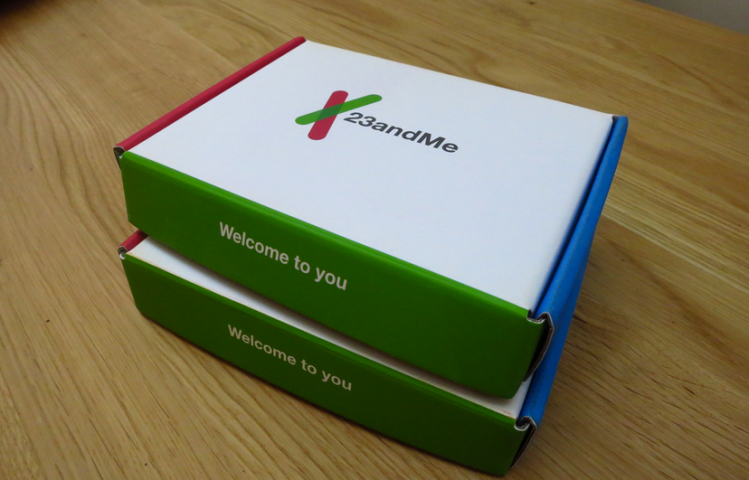After 48 hours of silence, 23andMe issued a response to the U.S. Food and Drug Administration’s public warning letter, which asked the home genetic-testing service to cease selling and marketing its kit.
23andMe has stayed quiet in response to the media firestorm, referring press to a short and rather conciliatory statement on the company blog. However, this morning, 23andMe chief executive Anne Wojcicki shared their side of the story and promised to provide further updates as the case develops.
It’s clear that 23andMe believes its actions will have implications for other companies in the genetic-testing field. The use of the phrase “lay the groundwork” is particularly interesting, and it suggests the company realizes that its actions could define how the FDA regulates direct-to-consumer genetic tests.
Wojcicki stresses that she “stands behind the data” despite the FDA’s fears that test results are not accurate and/or clinically validated. “This is new territory,” she writes. “This makes the regulatory process with the FDA important because the work we are doing with the agency will help lay the groundwork for what other companies in this new industry do in the future.”
In its stiff warning letter (delivered on Friday and made public on Monday), the FDA requested that 23andMe stop marketing its testing kit and provide specific actions to address its various concerns within 15 days. As of this report, the 23andMe test is still up for sale on the company’s website.
Innovation vs. regulation
This is by no means a clear-cut issue — it has caused dispute among bioethics experts and law professors for years. This particular case touches on complex issues of privacy, freedom of information, the proper classification of medical devices, and the (often precarious) balance between innovation and regulation.
Silicon Valley-based 23andMe claims that it is “saving lives” by delivering clinical data, such as your risk of developing breast cancer or Parkinson’s disease. The company says in its marketing materials that it will provide “health reports on 254 diseases and conditions.”
23andMe is not the first genetic test on the market, but it is the best known “direct to consumer” play. It is also the last company doing this after its rivals were acquired or simply ran out of money. 23andMe believes it’s cutting out the middle man by delivering results straight to you — in the past, doctors would order the tests on the patient’s behalf, and a genetic counselor would typically be on hand to decipher the results.
The FDA has not issued much clear direction about how it intends to regulate direct-to-consumer companies like 23andMe — a final guidance is still under development. However, 23andMe appears to have provoked the agency by ramping up its marketing to consumers. Far more troubling, the agency says 23andMe has failed to prove that the data is accurate.
“There should be sufficient or reasonable assurance the test results people are getting are accurate and that people are getting clear information about how to interpret those tests,” said Courtney Lias, the director of chemistry and toxicology devices at the FDA, in an interview with San Francisco NPR affiliate KQED.
23andMe has been working with the FDA since 2008, and this isn’t letter isn’t its first hurdle. However, for reasons that are not yet clear, 23andMe has not responded to the FDA in e-mail or other forms of written communication in almost six months. As I reported, this communication gap coincided with 23andMe’s aggressive marketing campaign on social media sites and broadcast TV networks.

